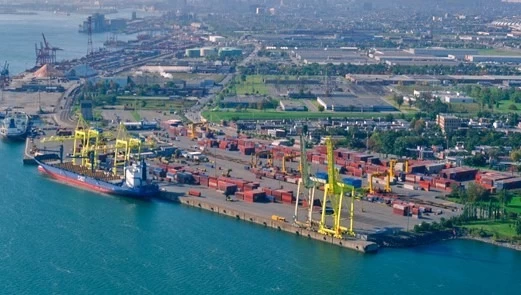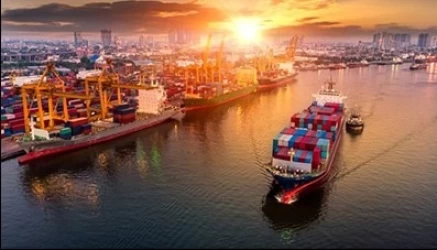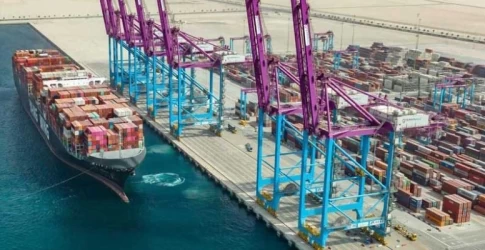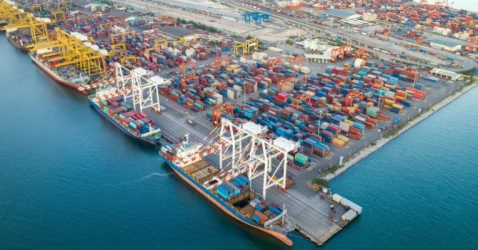Sea freight in the port of Montreal
The Port of Montreal, located in the province of Quebec, is one of Canada’s most important and busiest ports, serving as a vital gateway for international trade. It is strategically positioned on the St. Lawrence River and plays a key role in facilitating the movement of goods between Canada, Europe, the United States, and other parts of the world. This article will explore the history, infrastructure, economic impact, challenges, and future opportunities of maritime transportation at the Port of Montreal.
History of the Port of Montreal
The Port of Montreal has a rich history dating back to the 17th century when it served as a critical hub for trade in North America. Its location along the St. Lawrence River made it an ideal point for the exchange of goods. By the 20th century, the port had established itself as a major player in global maritime transportation. Over the years, it has undergone significant modernization to keep pace with growing international trade demands.
Infrastructure and Facilities
The Port of Montreal is equipped with state-of-the-art facilities to handle a wide variety of cargo, including containerized goods, bulk products, and specialized cargo. The port’s infrastructure is designed to support efficient loading, unloading, and storage of goods while minimizing turnaround times for ships. Key features of the port’s infrastructure include:
- Container Terminals: The port has multiple container terminals that handle a high volume of container traffic, connecting Montreal to major global markets in Europe, Asia, and North America. These terminals are equipped with cranes, storage facilities, and automated systems to streamline operations.
- Rail and Road Connectivity: The Port of Montreal is a critical hub for intermodal transportation, with seamless connections to Canada’s extensive railway and highway systems. This enables goods to be transported quickly and efficiently from the port to inland destinations across North America.
- Warehousing and Logistics: The port offers extensive warehousing facilities and logistics services that support the efficient movement and distribution of goods. These services include customs clearance, cargo handling, and real-time tracking systems, all aimed at ensuring smooth and secure logistics operations.
Economic Impact
The Port of Montreal is a major economic engine for both the province of Quebec and Canada as a whole. It facilitates the movement of billions of dollars worth of goods annually and supports thousands of jobs in sectors such as logistics, transportation, and manufacturing. Key economic benefits of the port include:
- Trade Gateway: Montreal serves as a crucial gateway for imports and exports, particularly for goods moving between Canada and Europe. Key commodities handled at the port include machinery, industrial products, food items, and petroleum products.
- Job Creation: The port directly and indirectly supports over 18,000 jobs in Montreal and surrounding regions. These jobs span various industries, including port operations, transportation, warehousing, and supply chain management.
- Regional Development: The Port of Montreal has contributed significantly to the development of infrastructure and industries in the region, attracting foreign investment and fostering the growth of businesses dependent on international trade.
Challenges Facing the Port of Montreal
Despite its many strengths, the Port of Montreal faces several challenges that need to be addressed to maintain its position as a key maritime hub:
- Climate Change: Rising sea levels and unpredictable weather patterns pose risks to port operations. The port is also susceptible to ice during the winter months, which can impact the shipping schedule. Adapting to climate change will require investments in resilient infrastructure and planning.
- Capacity Constraints: With growing international trade volumes, the port faces capacity limitations, especially during peak periods. Expanding the port’s infrastructure and facilities is crucial to accommodate the increased demand for cargo handling.
- Environmental Concerns: Like many major ports, Montreal must deal with the environmental impact of maritime activities, including air and water pollution from ships. Reducing emissions and improving sustainability are essential goals for the port’s future development.
Opportunities for Growth and Development
The Port of Montreal is well-positioned to capitalize on several opportunities for future growth:
- Sustainability Initiatives: The port is actively investing in green technologies and sustainable practices to reduce its environmental footprint. This includes the use of cleaner fuels, electrification of equipment, and implementing energy-efficient operations.
- Infrastructure Expansion: Plans are underway to expand the port’s capacity by developing new terminals, upgrading existing facilities, and improving transportation links. These upgrades will ensure that the port can handle the expected growth in cargo volumes over the coming years.
- Digitalization and Automation: The adoption of digital technologies and automation is transforming port operations, making them more efficient and cost-effective. The Port of Montreal is investing in smart port technologies that enable real-time data tracking, predictive maintenance, and automated cargo handling systems.
- Strengthening Trade Relationships: As global trade patterns shift, the Port of Montreal is well-positioned to strengthen its ties with emerging markets in Asia, Latin America, and Africa. Enhancing trade relations with these regions will open up new opportunities for business and economic growth.
Conclusion
The Port of Montreal is a cornerstone of Canada’s maritime transportation system, with a significant impact on the country’s economy and trade relations. Its modern infrastructure, strategic location, and commitment to sustainability make it a key player in global shipping. However, to remain competitive, the port must address challenges such as climate change, capacity constraints, and environmental concerns. By investing in infrastructure, embracing digital technologies, and pursuing sustainability initiatives, the Port of Montreal is poised for continued growth and success in the years to come.
If you have any specific questions or need further assistance, feel free to ask!











